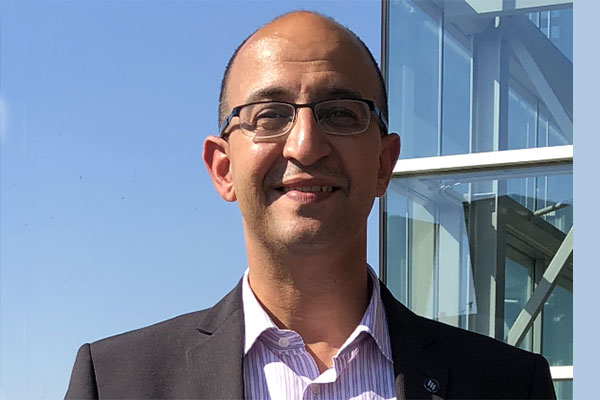
Mohamed Elsokkary
AI spurs journey to zero-touch network operations
DUBAI, September 7, 2020
By Mohamed Elsokkary
5G and next-generation technologies such as network slicing and IoT, along with an increasing number of connected devices and a spotlight on end user experience – it has become integral for Managed Services Providers (MSPs) to rewrite the rules of operations and focus on data-driven, automated managed operations.
Artificial Intelligence (AI) and Machine Learning (ML) plays a key role in managing new operational complexities, achieving cost efficacy, minimizing operational errors and augmenting the human capabilities. As such, we are shifting gears to become more predictable and proactive than ever before by implementing AI&ML.
As automation and AI technologies improve, zero-touch networks of the future will soon be able to automatically determine which actions to take with minimal human intervention. Introduction of AI cognitive algorithms enable the network to perceive current network conditions – making it easier to plan, decide and act on those conditions to achieve better outcomes. With cognitive networks based on AI techniques, we are getting closer to realizing the zero-touch vision which is set to be a game-changer in the next five years.
Self-adapting, scalable and intelligent agents will work alongside human experts to improve quality and increase the pace of decision-making in many ways, including:
• Automated provisioning, full service and domain-orchestration (self-healing, scaling, slicing, etc.)
• Automated fault diagnosis to reduce recovery time
• Proactive and predictive maintenance to reduce fault risk
• Automated performance diagnostics for the network
• Augmented workforce management
• Automated reporting across all domains
• Plug & Play installation and integration (Zero touch during deployment)
Ericsson is an industry leader in AI and Machine Learning for telecom network platforms. Its goal is to empower people and machines to transform engineered networks into continuous learning networks. At Mobile World Congress 2019, Ericsson presented its AI driven operation portfolios and its vision of the future as well as highlighting the many benefits of zero-touch.
Furthermore, successful implementation of Self-Optimizing Networks (SON) can also be considered as a way to get closer to materializing the zero touch vision. Ericsson’s SON philosophy is based on applying specific SON features where they become most effective in a network topology (Hybrid SON).
SON features that requires close to real-time decisions and work in a limited network area are typically delivered as Distributed SON features (D-SON), for example Inter-Frequency Load Balancing (IFLB), Adjacent Neighbor Relations (ANR) and Automated Mobility Optimization (AMO).
SON features that operate over the complete network and thus require longer time span for data collection or need to be multi-technology/multi-vendor capable in order to make decisions are typically delivered as Centralized SON features (C-SON), for example, Remote Electrical Tilt Optimization (RET).
Automation/AI is a journey and Ericsson has been on this journey for years already with a large yearly investment in R&D, and more than 300 R&D engineers on board in different global centres – working non-stop to build more and more AI/ML use cases.
Having implemented AI/ML on the ground in collaboration with service providers, we have concluded that in order to succeed in applying automation and AI, organizational aspects are just as critical as the technological ones. Change management, re-skills, upskills, developing competencies and new ways of working, altering culture and mindsets are all crucial building blocks in ensuring that AI and automation are utilized in the best way possible and transforming the operations function effectively.
About the author
Mohamed Elsokkary is Head of Managed Services for Ericsson Gulf Countries







